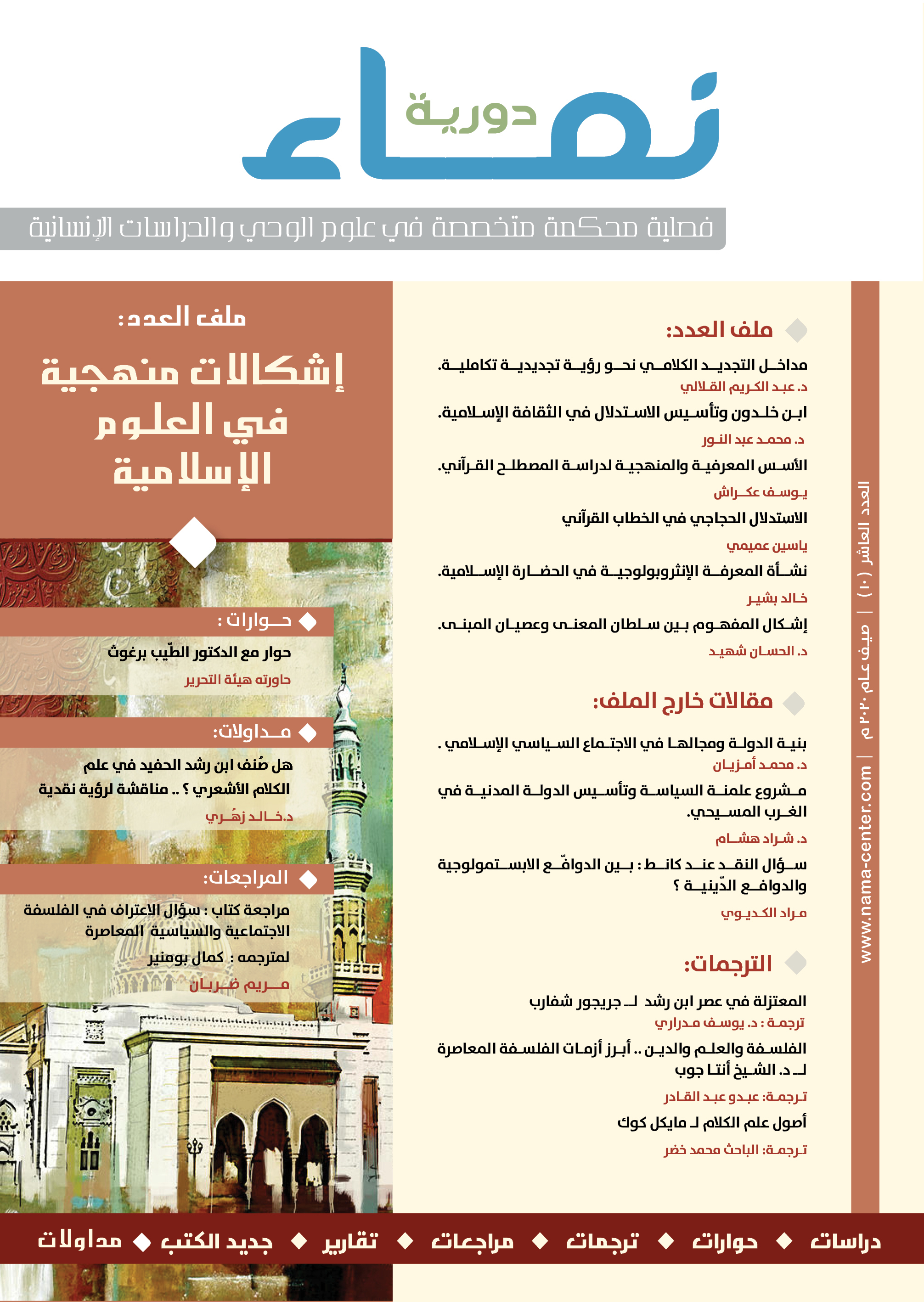Argumentative Reasoning in the Quranic Discourse: Verse 23 of Surat Al-Baqarah as an Example
Abstract
This research aims to distinguish between natural inferences and formal inferences. Then the applied side will focus on inventorying the inferential means intended to build Quranic reasoning capable of stirring minds and making them convinced. The study also aims to test the effectiveness of some prescriptive rules suggested by language logic and stand on the extent of the effectiveness of these rules in the absorption of natural inference with its complex paths. This research falls within the logical linguistic studies, which seek to establish a natural logic in which the necessary tools are available to track the existing inferences in natural language. If demonstrative logic is concerned with controlling and codifying formal inferences, then natural logic takes advantage of the demonstrative theory, and borrows some of its techniques to establish rules capable of monitoring the movement of natural inferences, and evaluating their effectiveness. The research stems from two basic hypotheses: the first is related to the method, through which we think that the combination of linguistic and logical studies provides the student with the appropriate keys to control the argumentative inferences that natural discourses abound with. The second hypothesis is related to the text, and we believe in this aspect that the Qur’anic discourse is unique in building a special argument that takes into account the different perceptions and disparate natures. It is this Qur'anic feature that makes the "one verse" sufficient - as we assume - to extract the most important principles of natural logic.
Full text article
Authors

This work is licensed under a Creative Commons Attribution-NonCommercial 4.0 International License.
yright and License
Researchers always have copyright. The research published in the Journal is licensed under the Creative Commons Attribution-Noncommercial 4.0 International License. This means that every person can download, read and use the research, provided that he/she relates it to its author appropriately, stating any amendments made. This work cannot be used for commercial purposes.

